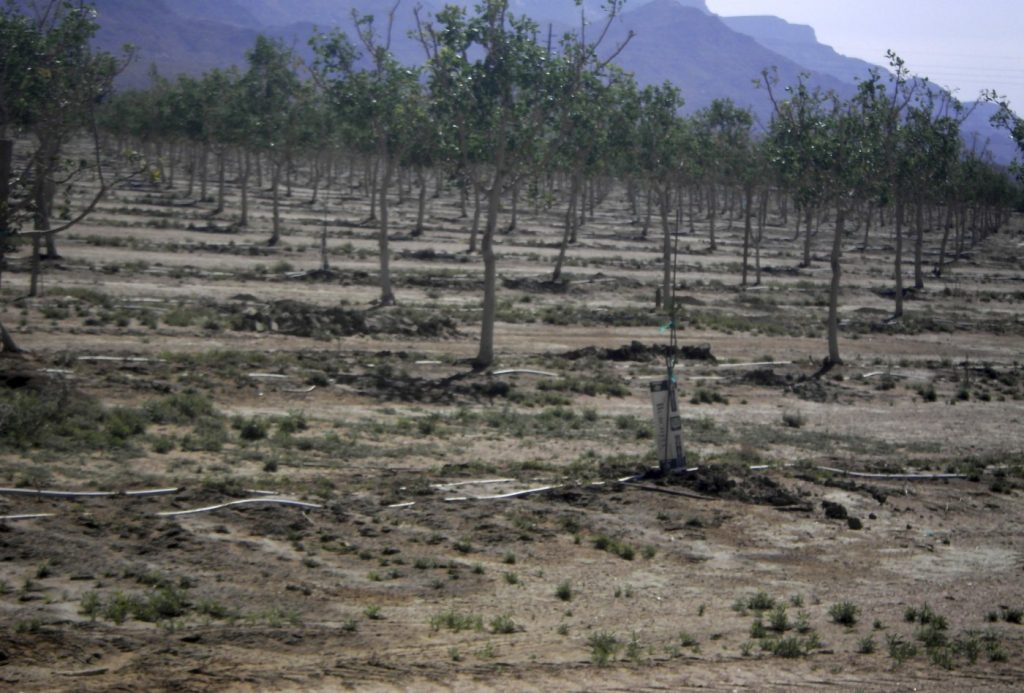PHOENIX (AP) - Arizona's governor, Katie Hobbs, and the Republican-controlled Legislature are currently experiencing significant friction regarding the regulation of groundwater pumping in the state's rural regions, with time running out for a resolution. At the beginning of the legislative session, Hobbs expressed optimism that Republicans would support her proposal to establish rural groundwater management areas. However, nearly four months into the session, talks have stalled, leading to mounting frustration over the urgent need for water conservation amid a prolonged drought.
According to Hobbs’ office, negotiators have not convened since early April. Around the same time, discontent grew among Republicans and certain interest groups regarding a separate proposal from the Arizona Department of Water Resources aimed at significantly reducing overdraft in the Willcox Basin—an objective deemed “unattainable” by Republican Senator Tim Dunn, a pivotal figure in negotiations. Overdraft occurs when groundwater extraction surpasses the natural replenishment rates, complicating the management of this essential resource.
Hobbs has indicated that if lawmakers adjourn—usually during the summer—without reaching a satisfactory agreement, she will take unilateral action. The legislature's inability to regulate water supplies in rural Arizona has left many basins unregulated, with stark differences between the visions of both parties regarding how to mitigate groundwater depletion. Negotiators have clashed over proposed mandates aimed at reducing groundwater extraction from aquifers. Republican plans are perceived by Democrats as insufficient, while the GOP critiques the Democrats’ proposals as excessively ambitious.
Additional points of contention lie in the composition of local councils responsible for overseeing groundwater usage, the specific water basins to be included, and the pathways for future regulation. Meanwhile, some wells in rural areas are running dry, forcing residents to choose between drilling deeper, transporting water, or relocating altogether. Sarah Porter, director of the Arizona State University Kyl Center for Water Policy, emphasized that while effective management strategies may not reverse the decline in underground water supplies, they can help to slow it.
The framework for managing groundwater in Arizona was established in 1980 and primarily focuses on heavily populated areas such as Phoenix and Tucson. Porter pointed out that the existing active management areas, designed for flourishing cities, are unsuitable for rural areas where agriculture plays a crucial role in the economy. The Arizona Department of Water Resources has suggested a separate policy aimed at addressing overdraft issues in the Willcox Basin, which has provoked concerns among Republicans and local businesses about potential negative impacts on rural economies.
Despite previous bipartisan efforts, past proposals aimed at managing groundwater in rural Arizona have failed to reach the governor's desk. Recently, in response to pressing concerns, voters approved a measure to establish an active management area in Douglas, a rural city located on Arizona's southeastern border. Additionally, Hobbs has exercised her executive authority to form another management area in the Willcox Basin.
The lack of progress in bipartisan negotiations has become increasingly apparent, with Democratic state Senator Priya Sundareshan stating, “I think it’s pretty clear that the rural groundwater negotiations are going nowhere.” In a recent statement, Hobbs criticized GOP legislators for their apparent unwillingness to engage in meaningful dialogue. Internal communications from Hobbs' office reveal dissatisfaction with what they perceive as a unilateral approach by Republicans to dictate the terms of negotiations.
Senator Dunn has expressed a desire to reconvene discussions with Hobbs and Democratic legislators, although he notes that concerns over the Arizona Department of Water Resources' proposals pose challenges to achieving a consensus in the Legislature. “If that’s their end game, we can’t get there,” Dunn commented, expressing frustration over the deepening divide. Philip Bashaw, CEO of the Arizona Farm Bureau, acknowledged that the situation has diminished the momentum for developing rural groundwater bills, stating, “It definitely took a lot of the air out of the balloon, that’s for sure.”











